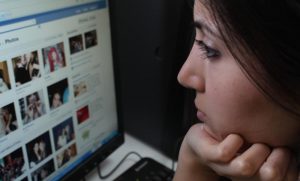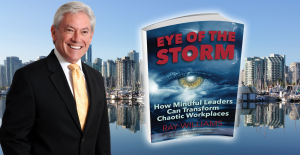Much has been written about the positive and negative impacts of social media, with particular reference to Facebook, which now has over 1 billion users. Research on the negative aspects of frequent Facebook use has focused on the possible relationships with negative psychological states and behavior such as anxiety, low self-esteem and narcissism.
Criticisms of Facebook
A study by H.T. Chou and N. Edge found that chronic Facebook users tend to think that other people lead happier lives than their own, leading them to feel that life is less fair. P. Buxmann, H. Krasnova and T. Widjaja have found that seeing others’ highlights on your News Feed can make you envious of friends’ travels, successes, and appearances.Eli Pariser, author of The Filter Bubble, can promise you won’t see the same search results.Facebook’s sorting function places posts higher in your News Feed if they’re from like-minded friends—which may distort your view of the world according to J. Constine.
W. Hofmann and colleagues randomly texted participants over the course of a week to ask what they most desired at that particular moment. They found that among their participants, social media use was craved even more than tobacco and alcohol.
One previous study from the University of Georgia finds that social networks play on our self-esteem and to some extent on more narcissistic tendencies. “Despite the name ‘social networks,’ much user activity on networking sites is self-focused,” said Brittany Gentile, a UGA doctoral candidate who looked at the effects of social networks on self-esteem and narcissism. The study, published in the journal Computers in Human Behavior, suggests that most people who log on to Facebook every day may be boosting their self-esteem in the process.

Facebook has acknowledged that social media use can be bad for users’ mental health, a sign the company is feeling pressure from a growing chorus of critics raising alarms about the platform’s effect on society.
Researchers for the social network admitted in a blogpost that studies have found that spending time on Facebook “passively consuming information” can leave people “feeling worse”, but also argued that part of the solution is to engage and interact more with people on the platform.
The company’s public recognition of some of its platform’s detrimental effects came days after a former Facebook executive made headlines with a speech slamming the corporation, saying: “The short-term, dopamine-driven feedback loops that we have created are destroying how society works. No civil discourse, no cooperation, misinformation, mistruth.”
In theory, the social networking website Facebook could be great for people with low self-esteem. Sharing is important for improving friendships. But in practice, people with low self-esteem seem to behave counterproductively, bombarding their friends with negative tidbits about their lives and making themselves less likeable, according to a study published in Psychological Science.
“We had this idea that Facebook could be a really fantastic place for people to strengthen their relationships,” says Amanda Forest, at the University of Waterloo with her advisor at the time, Joanne Wood. The two are generally interested in self-esteem, and how self-esteem affects the kinds of emotions people express. People with low self-esteem are often uncomfortable sharing face-to-face, but Facebook makes it possible to share remotely.
In one of their studies, Forest and Wood asked students how they feel about Facebook. People with low self-esteem were more likely to think that Facebook provided an opportunity to connect with other people, and to perceive it as a safe place that reduces the risk of awkward social situations.
The researchers also investigated what students actually wrote on Facebook. They asked the students for their last 10 status updates, sentences like, “[Name] is lucky to have such terrific friends and is looking forward to a great day tomorrow!” and “[Name] is upset b/c her phone got stolen :@.” These are visible to their Facebook friends, the people in their network.
Each set of status updates was rated for how positive or negative it was. For each set of statements, a coder – an undergraduate Facebook user – rated how much they liked the person who wrote them.
People with low self-esteem were more negative than people with high self-esteem – and the coders liked them less. The coders were strangers, but that’s realistic, Forest says. In earlier research, Wood and Forest found that nearly half of Facebook friends are actually strangers or acquaintances, not close friends.
Forest and Wood also found that people with low self-esteem get more responses from their real Facebook friends when they post highly positive updates, compared to less positive ones. People with high self-esteem, on the other hand, get more responses when they post negative items, perhaps because these are rarer for them.

So people with low self-esteem may feel safe making personal disclosures on Facebook – but they may not be helping themselves. “If you’re talking to somebody in person and you say something, you might get some indication that they don’t like it, that they’re sick of hearing your negativity,” Forest says. But when people have a negative reaction to a post on Facebook, they seem to keep it to themselves. “On Facebook, you don’t see most of the reactions.”
A Canadian study at York University, published in the journal Cyberpsychology, Behavior and Social Networking, of Facebook users ages 18-25 reviewed the subject’s use of the Facebook as well as the content they posted on their profiles. The subjects were also evaluated using the Narcissism Personality Inventory and measured according to the Rosenberg Self-Esteem Scale. The researchers looked closely at evidence of the participants “self-promotion” on their Facebook sites. Self-promotion was defined as things such as updating their status every five minutes, frequent posting of pictures of themselves, photos of celebrity look-alikes, and quotes and mottos glorifying themselves. The researchers concluded that the people who used Facebook the most tended to have narcissistic or insecure personalities.
Narcissism
Researchers Elliot Panek, Ph.D., Yioryos Nardis and Sara Konrath, Ph.D., explored the hypothesis that social media reflects and amplifies growing levels of narcissism within our culture. In a study published online in Computers in Human Behavior, the authors believe Facebook is a mirror and Twitter is a megaphone for the cultural obsession with self.
In another study, Christopher Carpenter, an assistant professor of communication at Western Illinois University, posits that Facebook has a dark side. Narcissism is defined in this study as “a pervasive pattern of grandiosity, need for admiration and an exaggerated sense of self-importance,” Carpenter said. He believes Facebook provides an ideal forum for the average narcissist. Study results confirmed Carpenter’s hypothesis that grandiose exhibitionism is associated with self-promotion and that entitlement/exploitativeness correlates with anti-social behaviors on Facebook.

A study by Larry Rosen at California State University, presented at the annual convention of the American Psychological Association, showed how teens who spend too much time on Facebook are more likely to show narcissistic tendencies and display signs of other behavioral problems. Rosen said the negative effects of teens overusing social media include making them more prone to vain, aggressive and anti-social behavior and that excessive use can lead to poorer academic performance.
Laura Buffardi and W. Keith Campbell, researchers from the University of Georgia, conducted research, published in Personality and Social Psychology Bulletin, which supports the Canadian study. “We found that people who are narcissistic use Facebook in a self-promoting way that can identified by others,” Buffardi reports. The researchers found that the number of Facebook friends and the way posts are made on profiles correlates with narcissism. Nearly all young people today use Facebook and it has become a normal part of social life, says Campbell, but “narcissists are using Facebook the same way they use their other relationships—for self-promotion with an emphasis on quantity over quality.”
Anxiety
A research study emphasizing the less desirable outcomes of Facebook activity was conducted by Scottish scientists at Edinburgh Napier University, by lead researcher Dr. Kathy Charles. Her research, concluded among other things:
- 12% of the users studied said their Facebook site made them anxious;
- 30% said they felt guilty about rejecting friend requests;
- Many said they felt pressure to come up with inventive status updates;
- Many did not like the different rules of online etiquette for different friends.
The obvious question arises, then, in reference to this research, if users felt stress and anxiety why do they keep using Facebook? Dr. Charles contends that the overwhelming majority of participants in her study wanted to use Facebook to keep in contact with friends and not miss out on something important. This generates pressure, Charles argues, keeping users in a state of “neurotic limbo,” similar to gambling—staying in the game waiting for the next good thing to happen.
The most recent research emphasizing the less desirable outcomes of Facebook activity was conducted by Scottish scientist at Edinburgh Napier University, by lead researcher Dr. Kathy Charles. Her research, concluded among other things:
- 12% of the users studied said their Facebook site made them anxious;
- 30% said they felt guilty bout rejecting friend requests;
- many said they felt pressure to come up with inventive status updates;
- many did not like the different rules of online etiquette for different friends.
The obvious question arises, then, in reference to this research, if users felt stress and anxiety why do they keep using Facebook? Dr. Charles contends that the overwhelming majority of participants in her study wanted to use Facebook to keep in contact with friends and not miss out on something important. This generates pressure, Charles argues, keeping users in a state of “neurotic limbo,” similar to gambling—staying in the game waiting for the next good thing to happen.
Not all of the study’s participants were enthusiastic about the benefits of Facebook even though they continued its use. Charles found “those with the most contacts, those who had invested the most time in the site, were the ones most likely to be stressed.”
Charles argues that many users feel anxious or stressed because of Facebook’s intrinsically self-centered structure: “You are almost of mini celebrity and the bigger the audience, the more pressure you feel to produce something about yourself.”
Charles’s research is supported by previous research conducted by Ben Marder at the University of Edinburgh’s Business School. He found the more groups of people in someone’s Facebook friends, the greater to cause offense. In particular, adding employers or parents resulted in the greatest increase in anxiety. Stress arises when a user presents a version of themselves or specific extreme behaviors on Facebook that is unacceptable to some of their online “friends.” Facebook “used to be like a great party for all your friends where you can dance drink and flirt. But now with your Mom, Dad and Boss there the party becomes an anxious event full of potential landmines,” Marder contends.
Copyright: Neither this article or a portion thereof may be reproduced in any print or media format without the express permission of the author.
Read my latest book: Eye of the Storm: How Mindful Leaders Can Transform Chaotic Workplaces, available in paperback and Kindle on Amazon and Barnes & Noble in the U.S., Canada, Europe and Australia and Asia.


